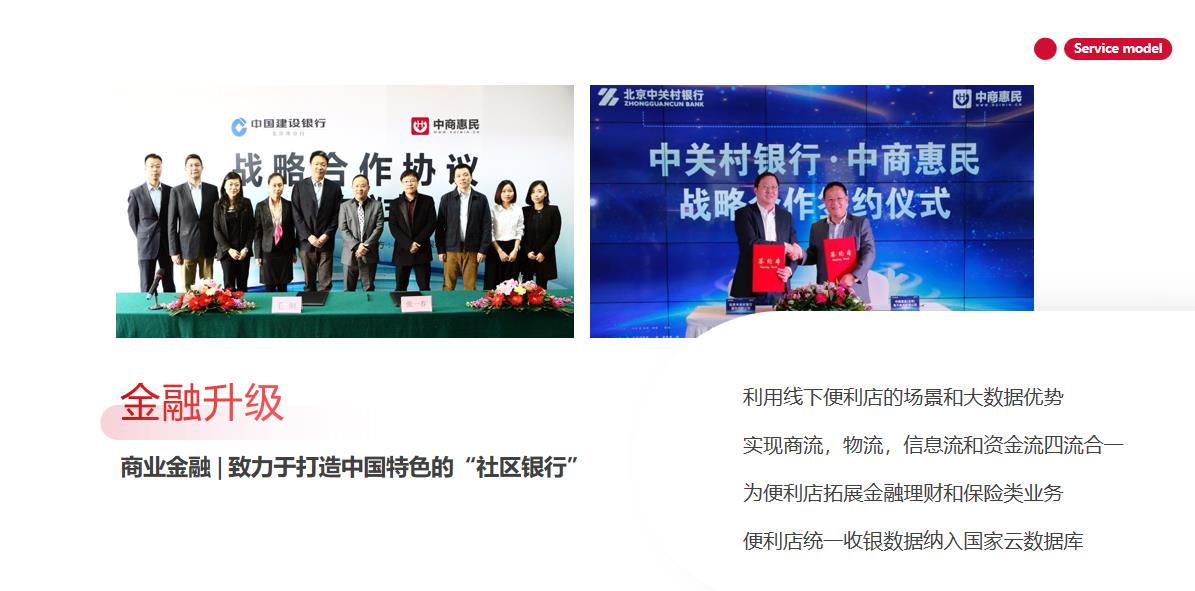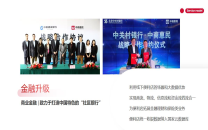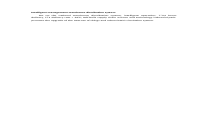
HuiMin
Founded Year
2013Stage
Series C | AliveTotal Raised
$519.63MLast Raised
$224.63M | 5 yrs agoMosaic Score The Mosaic Score is an algorithm that measures the overall financial health and market potential of private companies.
-73 points in the past 30 days
About HuiMin
HuiMin is a company that focuses on the modern service industry, specifically in the domain of fast-moving consumer goods (FMCG) B2B smart supply chains. The company offers a range of services including supply chain upgrades, product upgrades, service upgrades, financial upgrades, technology upgrades, and brand upgrades, all aimed at improving the efficiency and effectiveness of convenience stores. HuiMin primarily serves the retail industry, with a particular focus on convenience stores. It was founded in 2013 and is based in Beijing, Beijing.
Loading...
HuiMin's Product Videos



HuiMin's Products & Differentiators
Goods
Has the ownership of top brand goods in different categories and sells through the appliation
Loading...
Expert Collections containing HuiMin
Expert Collections are analyst-curated lists that highlight the companies you need to know in the most important technology spaces.
HuiMin is included in 3 Expert Collections, including E-Commerce.
E-Commerce
11,046 items
Companies that sell goods online (B2C), or enable the selling of goods online via tech solutions (B2B).
Unicorns- Billion Dollar Startups
1,249 items
Grocery Retail Tech
648 items
Startups providing B2B solutions to grocery businesses to improve their store and omni-channel performance. Includes customer analytics platforms, in-store robots, predictive inventory management systems, online enablement for grocers and consumables retailers, and more.
Latest HuiMin News
Nov 21, 2023
Share In a post-pandemic world, countless unassuming mom-and-pop shops in China are emerging as lucrative growth prospects. In 2017, Wang Yan signed a one-year contract with Huimin, paying a deposit of over RMB 1,000, which was refundable in installments. She opened her small store on the southern fifth ring of Beijing, but due to various reasons, including family changes, she decided to return to her hometown in Luoyang. A year later, Wang’s store removed the Huimin sign. Back in Luoyang, Wang and her husband decided to open a small supermarket to make a living. The store, located in Yibin, Luoyang, covers approximately 70 square meters, with a streetside storefront that spreads three meters wide. Inside, it displays fast-moving consumer goods, primarily beverages, snacks, and groceries. Since returning to Luoyang, Wang has been operating the store for nearly five years, with local residents forming the bulk of her customer base. Businesses like Wang’s, run by couples, often operate as family units in the form of individual businesses. They focus on selling groceries, beverages, and snacks, dominating various corners in Chinese cities, towns, and rural areas, earning the title of the “nerve endings” of the retail industry due to their direct interaction with consumers. Mom-and-pop shops: The retail “nerve endings” Vast product quantities and loose structures define businesses like Wang’s. They typically do not overly concern themselves with store decoration or displays, relying instead on instinct for buying and selling. Combined with their proximity to consumers, extended business hours, and personalized service, they have become sought-after entities. Surviving the pandemic as a small store was no easy feat for small businesses like Wang’s. In an interview with Lingshou Media, Wang said that promoters had been visiting her store a few years ago to either promote B2B platforms, offer to purchase her store, or provide assistance in franchising. Some platforms provided substantial subsidies which made her hesitate. However, Wang and her family eventually decided to run the business themselves, aiming to enhance their management skills. They opted to access centralized supply channels and began cooperating with a specific wholesale platform. Yibin, being a suburban area in Luoyang, often faces delayed deliveries. Wang’s store procures goods amounting to approximately RMB 700–800 daily, sourced from multiple suppliers. As the procurement volume is low, suppliers don’t offer many discounts. They are also not very responsive and it can be challenging to order certain products, Wang told Lingshou Media. In the first half of last year, the salesperson appointed to support the promotions of Wang’s store was described as “professional,” providing sensible advice. The salesperson suggested not to feature too many product categories, fine-tuning them to avoid complicating the product mix. According to Wang, the platform provided a refrigerator after supplying RMB 2,000 worth of goods. The store’s displays and labels also became more standardized. While acknowledging the various discounts on the platform, Wang said that only about 60–70% of the store’s current procurement comes from the platform. Wang also procures some goods through second-tier distribution channels. Gaining a new lease of life Family-run stores have been considered representatives of outdated productivity in the retail sector, characterized by numerous (complex) upstream supply chains, severe fragmentation, and low levels of digitization. Most profits are taken by intermediate merchants at various provincial, city, and county levels. Coupled with the store owners’ inability to distinguish between genuine and fake goods, the scattering of distributors, and inadequate logistics support, mom-and-pop stores generally find it challenging to thrive and form economies of scale. However, local mom-and-pop stores throughout China are being reassessed for their value, generating a gravity of their own as a wide range of parties, ranging from distributors to platform operators, brand manufacturers, and service providers, are turning their attention to them for expansion opportunities, offering to give these stores a new lease of life. Major digital service providers in China primarily target mainstream retailers, national chain specialty stores, and medium to large enterprises. B-side small stores, such as family-run stores, still lack the attention of service providers. Wang Qiang, a specialist in building supply chains for family-run stores in lower-tier markets, said to Lingshou Media that in the first half of last year, he established a promotion team in Shandong, targeting non-chain stores, small convenience stores, and small catering establishments. According to Wang Qiang, these small stores are more passive in terms of purchasing capabilities and are more willing to accept products recommended by distributors or second-tier merchants. These products are often single-brand or single-category, with few wholesalers focused on centralized product promotion for miscellaneous goods. There is even less emphasis on empowerment. While acknowledging that they are relatively new to the market and face a longer period for capacity building, Wang Qiang clarified that his establishment’s goal is not just to run a wholesale business for family-run stores. Instead, he hopes to strategically plan a comprehensive expansion, initially focusing on beverages before gradually broadening to include snacks, grains, oils, and seasonings. Eventually, he wants to develop and strengthen the offerings of these stores within each specific category. Understanding the real-world nuances The trend of brick-and-mortar stores entering the online-to-offline (O2O) space is a trend that has been accelerated by the pandemic. A variety of community businesses ranging from family-owned stores to vegetable markets, supermarkets, and community produce stores, among others, have all embraced this trend, becoming hotbeds of innovation in the retail industry in recent years. In particular, family-run stores in lower-tier markets remain among the most dynamic business models, offering advantages that can help platforms penetrate these markets more effectively. This has a significant impact on the retail market—while family-run stores may struggle to compete with chain retail stores in terms of scale, a significant number of consumers still choose to patronize them in their neighborhoods. Observing the market, it is evident that some family-run store operators have increased their revenue by joining platforms like Meituan. Similarly, on JD Daojia, family-run stores have benefitted from policies like the waiving of commissions. When the threshold for family-run stores to acquire resources is lowered, and their operational standards improve, the gap between them and large chain supermarkets may narrow. However, while the logic of this approach seems straightforward, the reality presents challenges. Photo of a supermarket in China. Photo courtesy of Lingshou Media. Zhang is the owner of a community-based dried fruit store located near Beijing’s southern fifth ring road. It has been open for nearly ten years. Some products are roasted and sold onsite, accumulating a loyal customer base by maintaining product quality while keeping prices affordable. In early 2021, Zhang started using Meituan and Ele.me, which helped to draw orders despite being deducted a considerable amount as commissions. However, pros and cons exist. Some familiar customers have remarked to Zhang that her online prices are much higher. For example, melon seeds typically cost around RMB 17 (USD 2.4) per kilogram when bought in the store, but the online price for the same product is around RMB 23.9 (USD 3.3) per kilogram. According to Zhang, the online prices are generally set higher to offset the platform fees. In the case of the melon seeds, the platforms only pay out RMB 15 (USD 2.1) per kilogram out of the full price of RMB 23.9 (USD 3.3). Zhang’s store is not an isolated case, but a reflection of numerous family-run stores that have joined online platforms. Photo of a dried fruit store in China. Photo courtesy of Lingshou Media. RELATED ARTICLE
HuiMin Frequently Asked Questions (FAQ)
When was HuiMin founded?
HuiMin was founded in 2013.
Where is HuiMin's headquarters?
HuiMin's headquarters is located at 5th Floor, Block B, Rongchuang Power Culture Innovation Industry Park, Beijing.
What is HuiMin's latest funding round?
HuiMin's latest funding round is Series C.
How much did HuiMin raise?
HuiMin raised a total of $519.63M.
Who are the investors of HuiMin?
Investors of HuiMin include Fortune Capital, GP Capital, Jinan Industrial Development Fund, China Renaissance, Fosun Capital and 10 more.
Who are HuiMin's competitors?
Competitors of HuiMin include Songkick and 3 more.
What products does HuiMin offer?
HuiMin's products include Goods and 2 more.
Who are HuiMin's customers?
Customers of HuiMin include Xiangyu Store and Youhuiwanjia CVS.
Loading...
Compare HuiMin to Competitors
BuyWithMe operates as a social shopping network. It offers a daily deal from local merchants. It focused on providing marketing solutions using group buying mechanisms and social media. The company was founded in 2009 and is based in New York, New York.
Influapp operates as a social marketing and financial technology platform that manages payments and can be used as a digital bank account.
Ilekun Health is a company focused on healthcare comparison shopping in the healthcare industry. The company's main service is providing a marketplace for patients to compare and choose healthcare providers, with a focus on dental services, enabling them to save money and pay upfront. The company primarily serves the healthcare industry. It is based in San Francisco, California.
Dashible is a digital marketing platform focused on customer loyalty and deal promotions within the retail and service sectors. The company offers a suite of tools for businesses to create digital loyalty programs and custom deals to attract and retain customers. Dashible primarily serves local businesses looking to increase foot traffic and customer engagement. It was founded in 2019 and is based in New York, New York.
Digikala Group operates as an e-commerce organization. It focuses on multiple online industries. The company offers a wide range of services including online retail of consumer goods, fashion and apparel, digital content publishing, advertising, data analytics, financial technology, and logistics solutions. It primarily serves the e-commerce industry with its comprehensive suite of services designed to enhance the online shopping experience. It was founded in 2006 and is based in Tehran, Iran.

Inmar focuses on leveraging data science and technology to provide solutions. It offers a range of services including incentives and loyalty programs, media solutions, returns management, and healthcare solutions. Its services aim to help brands, retailers, and healthcare organizations understand, predict, and meet the personalized needs of consumers. The was founded in 1980 and is based in Winston-Salem, North Carolina.
Loading...